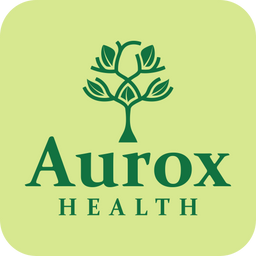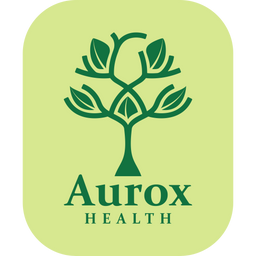I. Introduction: Unraveling the World of Dietary Supplements
Have you ever wondered about those tablets, capsules, or powders you sometimes include in your diet, the ones known as dietary supplements? Well, let's delve into that today.
Dietary supplements are substances that are designed to enhance your daily intake of nutrients, including vitamins, minerals, and herbs. They come in different forms, ranging from traditional tablets to capsules, liquids, powders, and even snack bars!
You may wonder, why do people take supplements? The simple answer is: to boost their overall health and wellness. These supplements can fill nutritional gaps in our diets and are especially helpful for those of us who may not get the full range of necessary nutrients from our food. Some people also use them to support specific health concerns, while others believe that these supplements can assist in weight management or even help protect them from diseases.
However, it's essential to remember that dietary supplements are not a replacement for a balanced, varied diet but rather a tool to ensure our bodies get the nutrition they need. Let's explore about the supplements safety and how to choose the right ones in the sections that follow.

II. The Benefits and Drawback of Dietary Supplements
Dietary supplements are widely perceived as beneficial in ensuring our bodies receive a sufficient amount of nutrients, especially when our diets are lacking. They can help to bridge nutritional gaps, bolster our immune system, and contribute to improved health. For those with specific dietary restrictions or medical conditions, supplements can be particularly beneficial in providing necessary nutrients that may be difficult to obtain from food alone.
Despite the perceived benefits, it's crucial to debunk some misconceptions about supplements. Firstly, they are not a substitute for a balanced diet. Consuming a variety of nutritious foods remains the best method for obtaining the nutrients your body needs. Secondly, more isn't always better. Taking excessive amounts of some vitamins and minerals can lead to health problems. Lastly, not all supplements are subjected to rigorous testing for efficacy and safety, unlike prescription drugs. Therefore, it's vital to approach supplement use with a measure of caution and always consult a healthcare professional before starting any new supplement regimen.
III. The Safety Aspect of Dietary Supplements

The regulation of dietary supplements falls under the jurisdiction of the U.S. Food and Drug Administration (FDA). However, it's crucial to understand that supplements are not subjected to the same rigorous testing and standards as prescription medications. Thus, the safety of these products can often be a subject of debate.
Supporting the notion of their general safety, a study published in the Journal of the American Dietetic Association found that dietary supplements pose minimal risks when used as directed. The research analyzed data from the National Poison Data System, concluding that merely 0.1% of over two million poisoning cases were associated with dietary supplements.
Despite these findings, safety can vary significantly depending on the ingredients within the supplement and an individual's health status. While vitamins, minerals, and some herbs are generally considered safe, other supplements containing substances like caffeine or steroids may pose health risks. Certain supplements may also contain high concentrations of vitamins or minerals that could be detrimental if consumed excessively. Moreover, supplements can have interactions with other medications or cause allergic reactions in some individuals. Therefore, their usage should always be approached with caution and preferably under the guidance of healthcare professionals.
IV. Case Study: Assessing Dietary Supplement Safety
Let's delve into the safety profiles of some widely used supplements:
-
Multivitamins: As the most commonly used supplement, multivitamins are generally safe for most people when taken as directed. However, excessive intake of certain vitamins can lead to adverse effects.
-
Fish Oil: Used for its Omega-3 content, fish oil has a good safety profile, but high doses can increase bleeding risk and affect immune response.
-
Probiotics: While generally considered safe, some individuals may experience digestive issues, and they can pose risks for immunocompromised individuals.
-
Calcium: Overconsumption of calcium supplements can lead to kidney stones and may increase the risk of heart disease. Read 15 Subtle Signs That You Might Have Calcium Deficiency.
-
Vitamin D: It's generally safe, but taken in excessive amounts, it can lead to hypercalcemia, causing nausea, vomiting, weakness, and kidney problems.
Remember, these safety profiles may vary greatly depending on the individual's health status, the dosage, and the duration of use. Always consult with a healthcare professional before adding a new supplement to your routine.
V. How to Choose Safe Dietary Supplements
To navigate the world of supplements safely, keep these guidelines in mind:
-
Research: Always thoroughly research any supplement you're considering. Look for scientific studies and credible sources that discuss its safety and efficacy.
-
Know Your Needs: Understand your dietary needs. What nutrients are you missing from your diet? Is a supplement necessary?
-
Read Labels: Always read the ingredient list and understand what you're putting into your body. Avoid supplements with a long list of ingredients you can't pronounce.
-
Quality Over Quantity: Look for brands that prioritize quality over quantity. Reputable brands will typically have third-party testing to ensure the safety and accuracy of their products.
While doing your own research is critical, it's equally important to consult with a healthcare professional before starting any new supplement regimen. They can provide personalized advice based on your specific health needs and conditions, helping you to avoid potential negative interactions or side effects. It's always better to be safe than sorry when it comes to your health.
VI. Conclusion
While supplements can provide potential health benefits, it's essential to be aware of their potential risks too. Just like any other health product, supplements are not without their drawbacks. The key is to strike a balance — understanding that while they can contribute to better health when used correctly, they're not a substitute for a balanced diet and healthy lifestyle.
In the end, the decision to use dietary supplements comes down to personal choice and health needs. Remember, supplements can complement your diet but they're not magic bullets. The best way to ensure good health is through a balanced diet, regular exercise, and regular check-ups with your healthcare provider. If you do choose to use supplements, ensure you're making an informed decision by doing your research, reading labels, and consulting with healthcare professionals. Stay safe and healthy!
VIII. Call to Action
In the quest for better health, it's crucial that you arm yourself with as much information as possible. If you're considering taking dietary supplements, don't stop at this article. Continue to educate yourself, explore credible sources of information, and engage in conversations about health and wellness.
Most importantly, seek professional advice. Healthcare professionals can provide personalized guidance based on your unique health needs and conditions. They can also help you navigate the wide range of dietary supplements available and ensure you make the safest and most effective choice.
Remember, it's your health and your journey. Make every decision an informed one. Here's to your health and well-being!
For safe and effective dietary supplements, here is our list.




